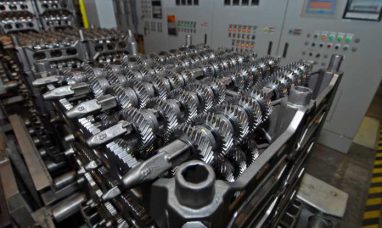Investors in Chinese stocks are grappling with disappointment as U.S. stock markets surge to new highs, contrasting sharply with the persistent decline in Chinese stocks, reaching their lowest levels in half a decade. Notably affected is Alibaba Group Holding (NYSE:BABA), which recently experienced a dip below its IPO price, highlighting a substantial downturn in its performance.
Alibaba’s Initial Public Offering (IPO) in 2014 marked a milestone, pricing its shares at $68 and raising an impressive $21.8 billion. However, nearly a decade later, BABA shares find themselves trading near their IPO levels. This contrasts sharply with U.S. tech counterparts like Amazon (NASDAQ:AMZN), which have seen significant exponential growth over the same period.
Factors Contributing to the Decline
The recent downturn in BABA stock is primarily attributed to a broader sell-off in Chinese shares rather than any company-specific issues. Lingering negative sentiments towards Chinese stocks stem from concerns about the softening of the world’s second-largest economy, structural issues including high government debt, a real estate slowdown, and banking sector challenges, including those within shadow banks. The aging population further compounds investor reluctance.
Valuation Derating and Economic Uncertainty
Chinese stocks have not only experienced a slowdown in growth, but they have also undergone a significant valuation derating. President Xi Jinping’s economic policies, coupled with escalating tensions between China and the Western world, particularly the U.S., have created an environment of uncertainty, making Chinese stocks less attractive to investors. The possibility of a return to the White House by Donald Trump, under whose administration the U.S.-China trade/tech war began, adds a layer of concern.
Alibaba’s Resilience and Future Outlook
Despite the challenges, Alibaba stands out with its relatively low valuations, single-digit price-to-earnings multiples, high free cash flows, and a reasonably positive growth outlook. The company’s decision to scrap its Cloud business IPO due to U.S. chip export restrictions reflects the impact of the ongoing tech war. However, Alibaba’s strategic reorganization into six business units remains promising.
Forecasting Alibaba’s Future
The outlook for Chinese stocks remains uncertain, marked by increased risks and investor pessimism leading to historically low valuations. Despite the prevailing challenges, the article suggests that Alibaba, with its sound fundamentals, might be worth the risk. The current situation is viewed as a capitulation stage, where fear is widespread. The article anticipates a recovery and upward movement for Chinese stocks, including Alibaba, acknowledging the volatility that might persist in the short term.
Analyst Recommendations and Upside Potential
Jefferies lists Alibaba among its top global picks, providing a target price of $133, implying a substantial upside of over 80% in the next 12 months. The consensus rating of “Strong Buy” aligns with a mean target price of $116.19, representing a 60.6% increase from current levels. While acknowledging the increased risks associated with Chinese companies, the article advocates a patient, long-term investment approach, echoing Warren Buffett’s adage to be “greedy when others are fearful.” Despite potential further declines, the risk-reward ratio is perceived as compelling at current prices.
Featured Image: Freepik















